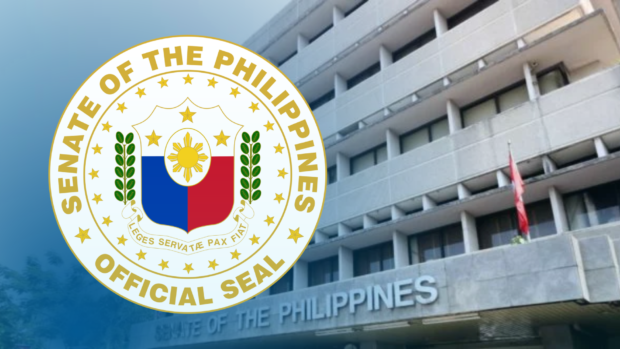
MANILA, Philippines — A bill that would define and penalize the crimes of agricultural smuggling, hoarding, profiteering and cartel as a joint panel in the Senate has approved economic sabotage.
Four committees in the Senate —agriculture, justice, finance, and ways and means— released their report on Tuesday on Senate Bill No. 2432, which defines and penalizes the crimes of agricultural economic sabotage.
The measure would repeal the Anti-Agricultural Smuggling Act of 2016 if enacted into law.
“The crimes of agricultural smuggling, hoarding, profiteering, and cartel as economic sabotage are committed when the value of each agricultural and fishery product subject of the crime is at least P1,000,000.00, using the Daily Price Index, under Section 19 of this Act, computed at the time the crime was committed,” the bill said.
Under the measure, agricultural hoarding is committed by “undue accumulation and unreasonable refusal in the face of the existing shortage of products, artificial or real… by person or combination of persons to dispose of, sell or distribute such products to the general public.”
“There shall be prima facie evidence of hoarding when a person has stocks of said products thirty percent (30%) higher than his usual inventory,” it said.
“The determination of a person’s usual inventory shall be reckoned from the third month immediately preceding the discovery of the excess stocks in case the person has been engaged in the business for at least three months; otherwise, it shall be reckoned from the time he started his business,” the bill also said.
Such prima facie violation, it said, should authorize law enforcers to confiscate agricultural products and arrest violators.
On the other hand, the sale or offering of products at a price “grossly in excess of their true worth, as indicated in the Daily Price Index” will be considered profiteering under the measure.
The absence of a price tag and an increase of more than 10 percent in the prices of agricultural products were among the prima facie evidence of profiteering mentioned in the bill.
Meanwhile, the bill defines a cartel as a crime “committed by any combination of or agreement between two or more persons engaged in the production, manufacture, processing, storage, supply, distribution, marketing, sale or disposition of any agricultural and fishery products designed to artificially and unreasonably increase or manipulate its price.”
“Provided that an agreement herein refers to any type or form of contract, arrangement, understanding, collective recommendation, or concerted action, whether formal or informal, explicit or tacit, written or oral,” it said.
Cartel is also committed “whenever there is parallel pricing or any market behavior that tends to exclude the possibility of independent action by the entities involved in such parallel pricing,” according to the bill.
The acts considered as smuggling in the bill include the importation of agricultural and fishery products into the Philippines without the required import clearance from regulatory agencies; misclassification, undervaluation, or misdeclaration of imported products; and organizing or using dummy corporations, non-government organizations, associations, cooperatives, partnerships, or single proprietorships to acquire import clearance.
A penalty of life imprisonment and a fine thrice the value of agricultural and fishery products subject to the crimes await violators if the bill becomes a law.